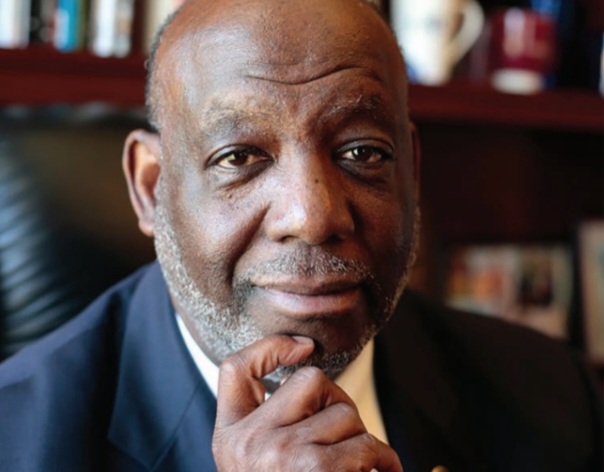In the wake of Donald Trump’s election as the 47th President of the United States, Americans face an urgent question: What comes next? Our deeply fractured electoral landscape stands at a perilous crossroads, testing the promise and resilience of our democracy.
Many fear a descent into a deep moral crisis, one that demands both clarity and a renewed commitment to justice. Yet, the signs from recent political developments provide little solace. Cabinet nominations reveal a disturbing trend: loyalty prioritized over competence, ideology above inclusivity, and the unchecked expansion of presidential power replacing legal accountability.
This reflects what philosopher Martha Nussbaum identifies as a “monarchy of fear,” where fear—rooted in asocial narcissism—becomes a central governing force. It merges fear with traditional conservative stances on taxes, regulation, and cultural issues, weaponizing division and distrust to maintain control. In A Monarchy of Fear, Nussbaum argues that fear thrives by framing immigrants, racial minorities, and political dissenters as existential threats. This tactic is deeply embedded in American history, long used to uphold white supremacy, patriarchy, and economic inequality. Both the Republican and Democratic parties must confront the systemic oppression and fear that fuel toxic partisanship, which obstructs progress on urgent issues such as labor rights, healthcare reform, poverty alleviation, and women’s reproductive freedom.
A Monarchy of Fear and Oppression
Traditionally, oppression refers to the exercise of tyranny by a dominant ruling group. However, oppression extends beyond overt acts of cruelty by tyrants with malicious intent. It also emerges in more insidious forms within well-intentioned liberal societies, where systemic constraints are imposed on certain groups, limiting their freedom and opportunities. Oppression stems from deeply embedded, unquestioned ideologies, norms, habits, and symbols that permeate society. These societal frameworks form restrictive structures of power—networks of forces and barriers that immobilize and diminish the agency and potential of specific groups or categories of people. In a monarchy of fear, this is how oppression can thrive even in contexts that outwardly value justice and equality.
Fear as a Tool of Oppression
The 2016 and 2020 elections exposed this fear’s persistence, particularly in the form of sexism and misogyny. The overt hostility toward women in power highlighted the fragility of a political system clinging to patriarchal norms, even as it purports to champion progress. The 2024 election cycle continued this trend, amplifying fear by proposing the dismantling of diversity, equity, and inclusion programs within government institutions. Misogyny remains deeply embedded in our policies and political culture, diminishing women’s leadership unless it aligns with the MAGA vision.
This structural misogyny fuels the same fear that sustains racism and classism, creating a trifecta of oppression designed to maintain the status quo. The question before us is stark: Will we permit fear to dominate, or will we rise with courage and moral resolve? Trump’s renewed “Make America Great Again” rhetoric is a nostalgic call to an era of exclusion and inequality, cloaked in promises of restored glory. But whose America does this vision truly serve? For marginalized communities, it is a haunting reminder of a time when their voices were systematically silenced.
A Prophetic Call to Justice
The January 6, 2021, insurrection was more than an attack on the Capitol; it was an assault on the very soul of democracy. It revealed a nation torn between two visions—one clinging to systems of oppression, and the other pressing forward toward justice and inclusion. To navigate this divide, I encourage us to draw inspiration from the prophetic voices of the Hebrew Bible.
Prophets like Amos, Micah, and Isaiah denounced injustice, envisioning a society rooted in righteousness: “Let justice roll down like waters and righteousness like an ever-flowing stream” (Amos 5:24). Their call reminds us that justice demands relentless pursuit. Martin Luther King Jr. echoed this vision, urging love and truth as antidotes to fear. “Courage,” King declared, “is an inner resolution to go forward despite obstacles; cowardice is submissive surrender to circumstances.” In 1965, King invited Abraham Joshua Heschel to join the Selma march for voting rights. Reflecting on the prophet’s role, Heschel remarked, “The prophet is one God has thrust a burden upon their soul,” emphasizing the responsibility to confront injustice with moral courage.
Rejecting Fear, Embracing Courage
The systems perpetuating inequality—racism, sexism, economic exploitation—are sustained by fear. They thrive on silence and complacency. Yet, history teaches us that fear cannot withstand collective courage. The struggle for justice has always been propelled by those who refused to let fear define their vision for a just world.
As a product of the Black Church tradition, I find strength in its legacy of hope and justice. This faith has long been a bulwark against fear, nurturing resilience in the face of systemic oppression. Our ancestors, guided by a vision of God’s beloved community, fought to break the chains of fear and injustice.
In his 2015 Selma address, President Barack Obama posed a profound challenge: “What greater form of patriotism is there than the belief that America is not yet finished, that each generation can look upon our imperfections and decide that it is in our power to remake this nation to more closely align with our highest ideals?”
A More Perfect Union
The time for action is now. As Heschel reminded us, “In a free society, some are guilty, but all are responsible.” Our future depends on rejecting fear and choosing justice. Let us rise together, embracing the prophetic courage of our ancestors. Let us dismantle the structures of oppression and build a nation that embodies the biblical call for justice, equity, and love.
This is our sacred duty. This is our prophetic call. Let justice roll down like waters, and righteousness like an ever-flowing stream.



